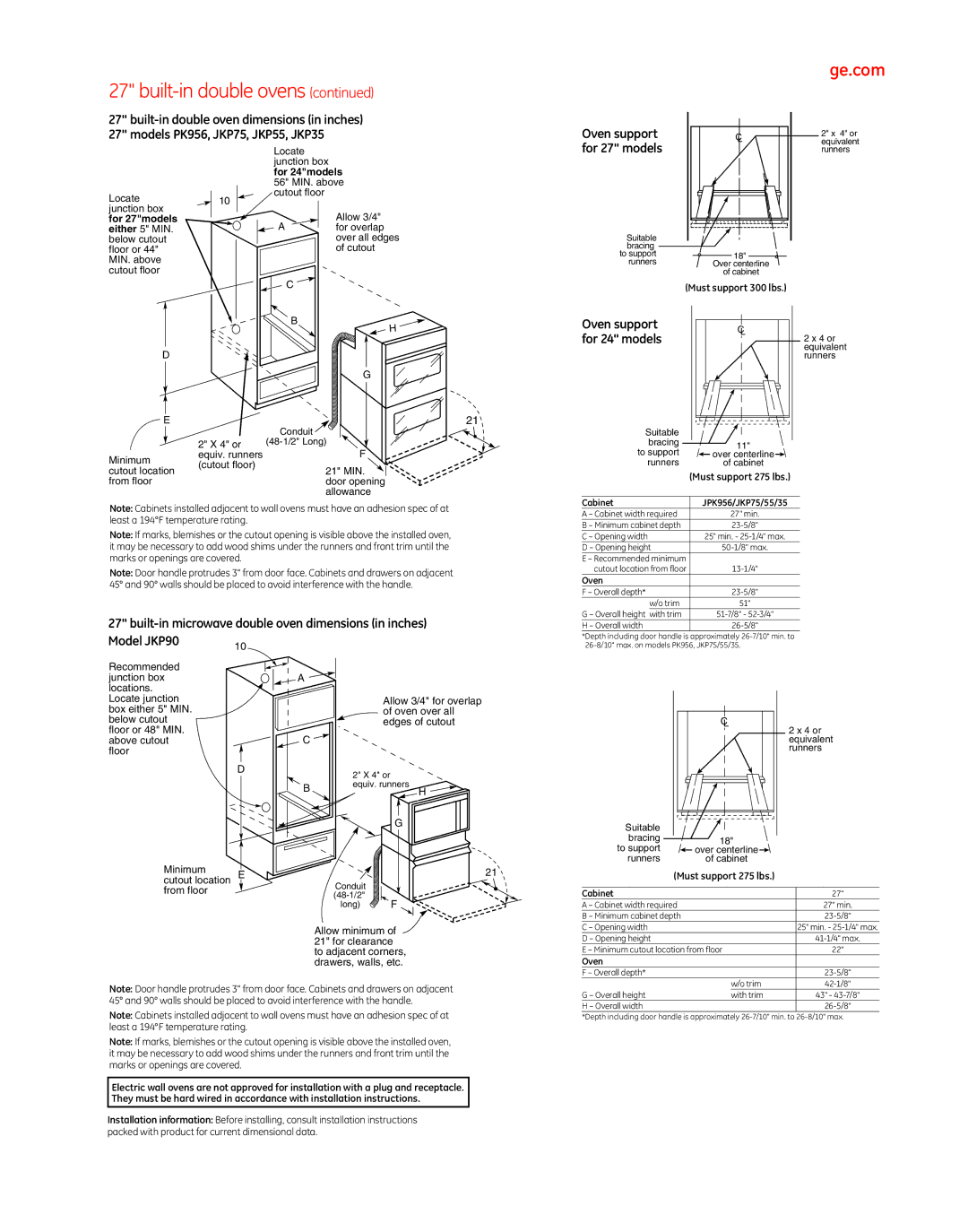PT920, PT960 specifications
The GE PT960 and PT920 are advanced power transformers that exemplify General Electric's commitment to innovation and performance in electrical engineering. Designed for versatility and efficiency, these transformers are pivotal in various industrial applications, including energy generation, transmission, and distribution.The PT960 is known for its high power rating and robust construction, making it ideal for demanding tasks in heavy industry. With a power rating of up to 960 MVA (megavolt-amperes), it ensures reliable voltage transformation in large-scale power systems. Meanwhile, the PT920 is slightly smaller, yet it retains exceptional capability with a power rating of up to 920 MVA, suitable for a different range of applications without compromising performance.
Both models incorporate GE's advanced insulation technology, which significantly enhances durability and reliability. The insulation systems are designed to withstand harsh environmental conditions, reducing the risk of failure and extending the lifespan of the transformer. Additionally, these transformers feature efficient cooling systems that optimize heat dissipation, ensuring stable operation despite the load variations.
One of the key characteristics of the GE PT960 and PT920 is their modular design. This modularity allows for easier transportation and installation, reducing construction time on site. The transformers are equipped with digital monitoring systems that provide real-time data and diagnostics. This technology aids in predictive maintenance, enabling operators to identify potential issues before they escalate.
The transformers also utilize GE's advanced electromagnetic modeling techniques, ensuring minimized losses during operation. This efficiency translates into reduced operational costs and a smaller carbon footprint, aligning with global trends towards sustainability.
Moreover, both models support a variety of configuration options to meet specific client needs, including different voltage levels and winding arrangements. This flexibility makes them suitable for integration into various power networks worldwide.
In summary, the GE PT960 and PT920 transformers stand out for their high power ratings, durable insulation, efficient cooling, modular construction, digital monitoring capabilities, and operational efficiency. These attributes make them a preferred choice for power utilities and industries seeking reliable and innovative solutions for their electrical infrastructure needs.

